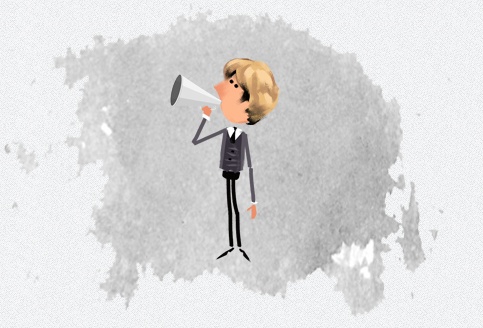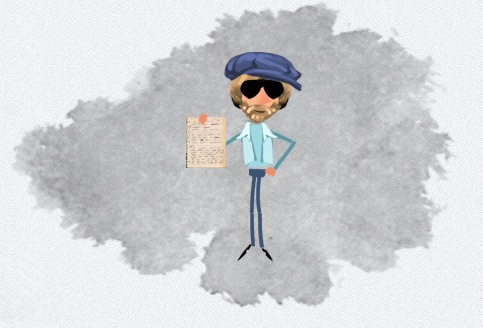A nice piece of Nilssonian ephemera recently added to the archives here. A full transcription follows beneath the images …
HARRY NILSSON is one of the most highly regarded songwriters and vocalists in contemporary music.
At the now legendary 1968 Press conference for the opening of the Beatles’ Apple Records, John Lennon was asked to name his favourite singer. He replied, “Nilsson.” Paul McCartney, in turn, was asked his favourite group. “Nilsson” was again the answer. Although he had only done one album at the time, “Pandemonium Shadow Show” Nilsson had established a tremendous reputation among his musical peers that would grow into a large popular following through the late 60’s and 70’s.
Eighteen albums later, he has won countless gold and platinum records, two Grammy Awards as Best Male Vocalist and a list of every major award in the recording industry.
Recently, he signed a new long-term recording deal with Phonogram International and his first Mercury album, “Flash Harry” is due for release in early September. A single, “I Don’t Need You” will be issued at the same time.
Harry Edward Nilsson was born in Brooklyn, New York in 1941 and moved to southern California as an adolescent. He dropped out of high school, and after a hitch-hiking sojourn, and job as an usher/assistant manager in a movie theatre, took a job in a San Fernando Valley Bank. By the mid 60’s he had become a supervisor of the night shift in the bank’s computer processing department.
By day, he wrote songs, earned extra money singing radio commercials, recorded demos and pursued record producers. He sold his first song, “Travellin’ Man,” for $5 to the New Christy Minstrels who made a chart hit of it. His first big break came in 1967 when he met dynamic record producer Phil Spector who bought three of his songs – “Paradise” and “Here I Sit,” two Ronette hits, and “This Could Be The Night” a chart success by the short-lived group MFQ.
cont’d …..
HARRY NILSSON Page 2
During this time, he also played background piano at the Spector sessions.
That same year, Harry was signed to a long-term contract by RCA Records, and within a year had produced, performed and written song of the songs for two albums. Critically successful the albums, “Pandemonium Shadow Show” and “Aerial Ballet” (a title he took from the name of his grandparents’ circus act,) sold moderately. However, every Nilsson song on these albums was covered by a major artist. When astronaut Gordon Armstrong took his first step on the moon, the Three Dog Night version of his “One” was the number one record in the U.S.
At the height of the early 70’s acid-metal rock craze, Harry recorded three albums in London, “Nilsson Schmilsson,” “Son Of Schmilsson,” and “A Little Touch Of Schmilsson In The Night.” These albums continue to sell world-wide. Other albums include “Harry;” “Nilsson Sings Newman;””Duit On Mon Dei;” “Sandman;” “Pussy Cats;” “Knnillsson;” “Son Of Dracula;” “The Way It Is;” “Aerial Pandemonium Ballet;” “Night After Night.”
In films, Harry is probably best known for his rendition of Fred Nell’s “Everybody’s Talkin'” in “Midnight Cowboy.” Ironically, Harry’s own song ” I Guess The Lord Must Be In New York City” was in competition for the movie’s theme. The song became a hit single on its own in 1970.
Films scored by Harry Include Otto Preminger’s “Skidoo,” with Jackie Gleason and Groucho Marx, and “Jenny” with Marlo Thomas and Alan Alda. In both cases the films received far less praise than the music. In 1969, he also wrote the song score to TV’s “The Courtship of Eddie’s Father.”
In 1971, Harry wrote the script and music for the only animated feature-length film for television, “The Point,” which Dustin Hoffman narrated. Harry, subsequently, adapted the story for the stage, performing it with Arthur Fielder in Boston and its two seasons in London’s Mermaid Theatre broke box office records, won one award and was nominated for another. “The Point” is
cont’d …….
HARRY NILSSON Page 3
now in preparation for a Broadway run.
Also on its way to Broadway (opening on September 17) is “Zapata,” a musical featuring a 12-song score co-written by Harry including the song “A Wedding” already a European hit by Demis Roussos.
Looking to the future, Harry wants gradually to phase out his successful recording career to concentrate on plays, films and novels. He has already started work on a musical adaptation of the “Blondie” comic strip and is producing recordings by Frank Stallone (brother of Sylvester.)
Harry lives with his Irish-born wife Una and sons Beau and Ben in the Bel Air district of California.
His most recent musical experience was supervising the recording of the songs he has penned for Robert Altman’s live action musical “Popeye” which stars Robin ‘Mork’ Williams in the title role and Shelley Duvall as Olive Oyl.
“Flash Harry” (a title culled from the Harry Flashman books) is Nilsson’s first Mercury album. It features five Nilsson compositions (including”Old Dirt Road” which he co-wrote with John Lennon.) Produced by Steve Cropper of Booker T & The MGs fame the backing musicians include Donald “Duck” Dunn of the same group and Ringo Start. Eric Idle and Charlie Dore make guest appearances on the album singing Idle’s title song “Harry.”
HARRY NILSSON
“FLASH HARRY” LP Mercury 6302 022
“I Don’t Need You”/”It’s So Easy” Single Mercury MER 40 Both released September 5 1980.
August 1980. More information : NORMAN DIVALL.










